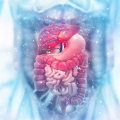Taking dietary supplements can be beneficial for your health, but it is important to be aware of the potential risks associated with them. Skin rashes, shortness of breath, diarrhea, severe joint or muscle pain, difficulty speaking and blood in the urine are some of the adverse events that may result from taking supplements. These symptoms can range from mild to life-threatening. In addition, supplements can interact with each other and with over-the-counter (OTC) and prescription drugs.
Unlike drugs, dietary supplements are not reviewed by the U. S. Food and Drug Administration (FDA) for safety and effectiveness before they are marketed. It is up to manufacturers to ensure that their products do not contain contaminants or impurities, are properly labeled and contain what they claim. A systematic review that analyzed the possible effects of nutritional supplements on cardiovascular health found that few supplements help prevent heart disease; only omega-3 fatty acids and folic acid were effective.
The same was true with dietary changes, except for a low-salt diet. Other research on self-reported dietary habits by a group of Americans linked daily doses of more than 1000 milligrams (mg) of calcium with a higher risk of death from cancer. In addition, the data showed that people who consumed adequate amounts of magnesium, zinc, and vitamins A and K had a lower risk of death, but only if they got those nutrients from food rather than supplements. If you are managing an underlying health condition (especially if you are taking medications) or are pregnant or breastfeeding, it is best to talk to your health care team before adding any new supplement to your regimen. Here are seven popular supplements that should be taken with caution: Vitamin D, St.
John's Wort, Calcium, Iron, Vitamin A, Vitamin E and Zinc. Vitamin D promotes the absorption of calcium in the body and is critical for health and well-being. Vitamin D supplements are popular because it is difficult (if not impossible for some) to get enough from food. However, taking high doses is not a good option as it can cause additional calcium absorption and lead to muscle pain, mood disorders, abdominal pain and kidney stones.
It can also increase the risk of heart attack and stroke. St. John's Wort is a plant that is used as tea or in capsules with supposed benefits for depression, attention deficit hyperactivity disorder, menopausal symptoms, insomnia, kidney and lung problems, obsessive-compulsive disorder, wound healing and more. While it may be effective in treating mild depression, St. John's Wort can interact with medications such as birth control pills, chemotherapy drugs against HIV or AIDS and medications to prevent organ rejection after a transplant. Calcium is essential for a strong skeleton but taking too much can be harmful.
More than 2500 mg per day for adults ages 19 to 50 and more than 2000 mg per day for people age 51 and older can cause problems. Calcium supplements carry risks such as hardening of the arteries or atherosclerosis and an increased risk of heart disease. Iron is an essential mineral but taking too much can be toxic. Iron supplements should only be taken under medical supervision as they can cause nausea, vomiting, abdominal pain and constipation. Vitamin A is important for vision but taking too much can be toxic. High doses of vitamin A can cause nausea, vomiting, headache, dizziness and blurred vision. Vitamin E is an antioxidant that helps protect cells from damage but taking too much can be dangerous.
High doses of vitamin E can cause nausea, diarrhea and fatigue. Zinc is important for immune system function but taking too much can be toxic. High doses of zinc can cause nausea, vomiting and diarrhea. It is important to remember that enthusiasm for dietary supplements is outpacing the evidence. National Institutes of Health (NIH) fact sheets provide detailed information on the benefits and risks of individual vitamins and minerals as well as herbal supplements.







